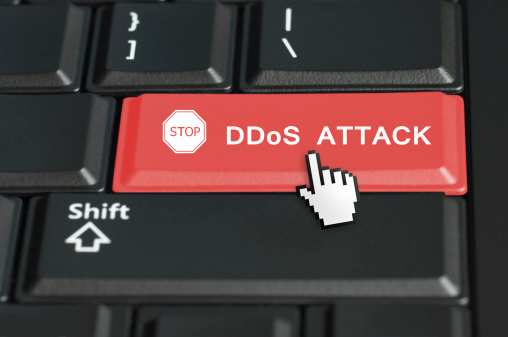Solving Challenges of Scale in Data and Language
It would not be too much of an exaggeration to say that the early internet operated on the scale of kilobytes, with all spoken languages represented using a single character encoding – ASCII. Today’s global internet, so fundamental to society and the world’s economy, now enables access to orders of magnitude more information, connecting a speakers of a full spectrum of languages.
The research challenges continue to scale along with data volumes and user diversity.

IANA 2.0: Ensuring ICANN Accountability and Transparency for the Future
The National Telecommunications and Information Administration’s (NTIA) March 14, 2014, announcement proposing the transition of its legacy Internet Assigned Numbers Authority (IANA) stewardship role has presented the Internet Corporation for Assigned Names and Numbers (ICANN) multi-stakeholder community equal amounts of opportunity and responsibility. We have been handed a singular opportunity to define the terms of any stewardship transition and the fundamental responsibility to get it right.
Getting it right means ensuring, through a bottom-up, multi-stakeholder process, the reform of ICANN’s accountability structures to protect the community and the multi-stakeholder model prior to NTIA’s disengagement from its oversight and stewardship role. It also means acting quickly and efficiently so our window of opportunity is not missed.

The Evolving Threat of Amplification DDoS Attacks
If there is one trend in the cybersecurity world over the last 12 to 18 months that cannot be ignored, it is the increasing prevalence and destructive power of amplification-based distributed denial of service (DDoS) attacks.
An amplification attack is a two-part DDoS attack that generally uses the User Datagram Protocol (UDP). An attacker first sends a large number of small requests to unsuspecting third-party servers on the internet. The attacker crafts these requests to result in large responses, but they are otherwise normal except that their source addresses are rewritten (spoofed) so they appear to have come from the victim instead of the attacker. When all the third-party servers send their large responses to the victim, the resulting amount of traffic is much more than the attacker could have generated alone. These attacks often overwhelm the resources of the victim, as attacks in the hundreds of gigabits per second (Gbps) are possible using this method.

Verisign Named to the OTA’s 2014 Online Trust Honor Roll

Your .com Is Waiting
Thinking of growing your business online? Look no further than .com. It is the most universally recognized, and gold standard, in domain names, which is why 97 percent of the top 100 brands, and 93 percent of Fortune Global 100 companies house their company websites on .com.

Almost Half of Companies Lack DDoS Response Plans

The Real Uneven Playing Field of Name Collisions
Recent comments on the name collisions issue in the new gTLD program raise a question about the differences between established and new gTLDs with respect to name collisions, and whether they’re on an even playing field with one another.
Verisign’s latest public comments on ICANN’s “Mitigating the Risk of DNS Namespace Collisions” Phase One Report, in answering the question, suggest that the playing field the industry should be concerned about is actually in a different place. The following points are excerpted from the comments submitted April 21.

Introducing getdns: a Modern, Extensible, Open Source API for the DNS
Verisign is pleased to announce the public introduction of getdns at The Next Web in Amsterdam (TNWEurope) April 23-24, 2014. Verisign Labs and NLNet Labs in collaboration have developed getdns, an open source implementation of the getdns-api application programming interface (api) specification.
At The Next Web, getdns is one of the challenge APIs in a 36-hour Hack Battle. Multiple teams of application coding experts are using getdns to develop innovative applications that leverage the global security infrastructure available through DNS Security Extensions (DNSSEC).

Verisign’s Preliminary Comments on ICANN’s Name Collisions Phase One Report
Verisign posted preliminary public comments on the “Mitigating the Risk of DNS Namespace Collisions” Phase One Report released by ICANN earlier this month. JAS Global Advisors, authors of the report contracted by ICANN, have done solid work putting together a set of recommendations to address the name collisions problem, which is not an easy one, given the uncertainty for how installed systems actually interact with the global DNS. However, there is still much work to be done.

DNS Outages: The Challenges of Operating Critical Infrastructure
Recent attacks targeting enterprise websites have created greater awareness around how critical DNS is for the reliability of internet services and the potentially catastrophic impact of a DNS outage. The DNS, made up of a complex system of root and lower level name servers, translates user-friendly domain names to numerical IP addresses. With few exceptions, DNS lives in a grey area between IT and network operations. With the increasing occurrences of distributed denial of service (DDoS) attacks, advanced persistent threats (APTs) and exploitation of user errors through techniques such as typosquatting and phishing, enterprises can no longer take a passive role in managing their DNS internet infrastructure.